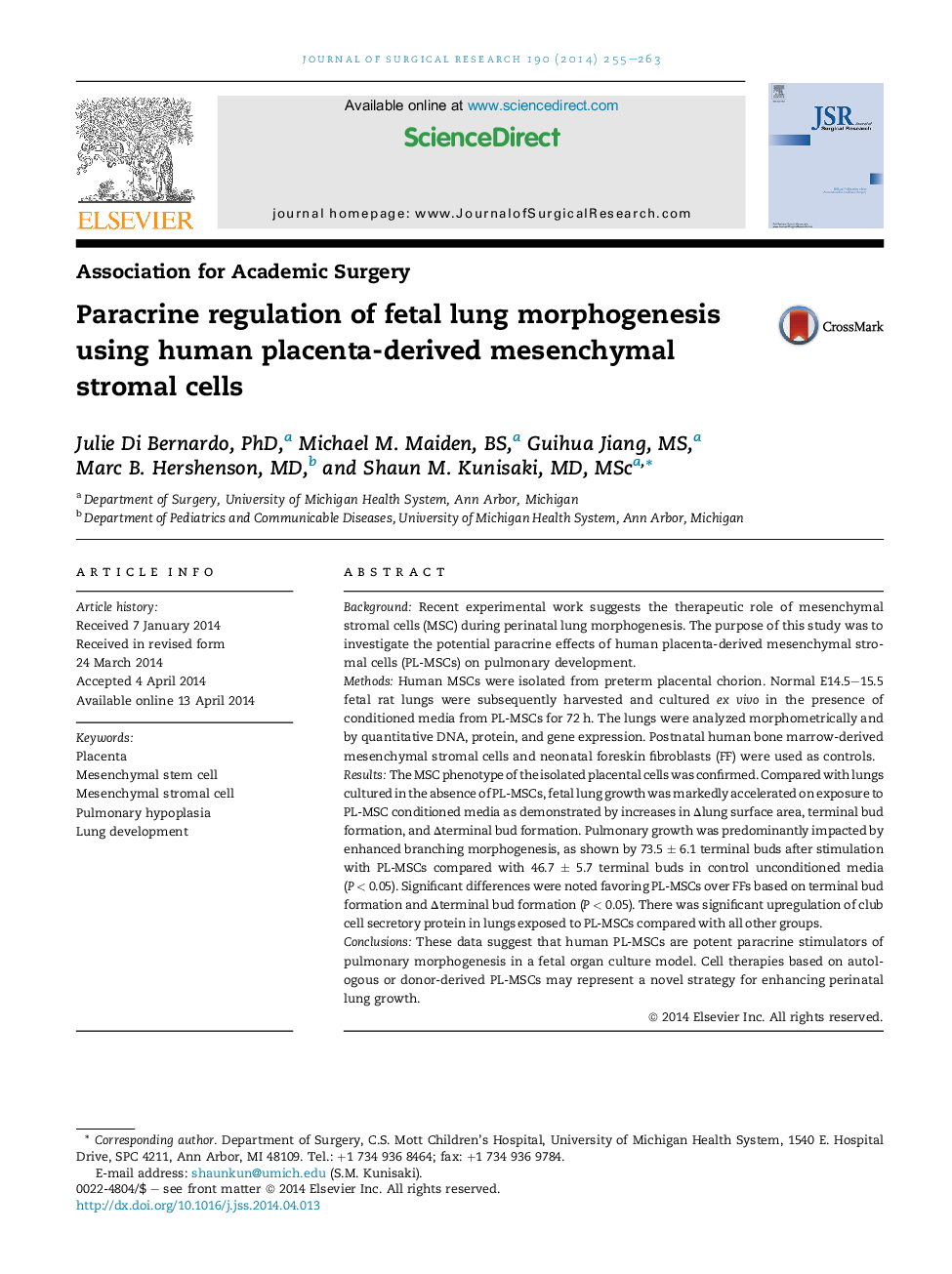| کد مقاله | کد نشریه | سال انتشار | مقاله انگلیسی | نسخه تمام متن |
|---|---|---|---|---|
| 4300191 | 1288414 | 2014 | 9 صفحه PDF | دانلود رایگان |
BackgroundRecent experimental work suggests the therapeutic role of mesenchymal stromal cells (MSC) during perinatal lung morphogenesis. The purpose of this study was to investigate the potential paracrine effects of human placenta-derived mesenchymal stromal cells (PL-MSCs) on pulmonary development.MethodsHuman MSCs were isolated from preterm placental chorion. Normal E14.5–15.5 fetal rat lungs were subsequently harvested and cultured ex vivo in the presence of conditioned media from PL-MSCs for 72 h. The lungs were analyzed morphometrically and by quantitative DNA, protein, and gene expression. Postnatal human bone marrow-derived mesenchymal stromal cells and neonatal foreskin fibroblasts (FF) were used as controls.ResultsThe MSC phenotype of the isolated placental cells was confirmed. Compared with lungs cultured in the absence of PL-MSCs, fetal lung growth was markedly accelerated on exposure to PL-MSC conditioned media as demonstrated by increases in Δlung surface area, terminal bud formation, and Δterminal bud formation. Pulmonary growth was predominantly impacted by enhanced branching morphogenesis, as shown by 73.5 ± 6.1 terminal buds after stimulation with PL-MSCs compared with 46.7 ± 5.7 terminal buds in control unconditioned media (P < 0.05). Significant differences were noted favoring PL-MSCs over FFs based on terminal bud formation and Δterminal bud formation (P < 0.05). There was significant upregulation of club cell secretory protein in lungs exposed to PL-MSCs compared with all other groups.ConclusionsThese data suggest that human PL-MSCs are potent paracrine stimulators of pulmonary morphogenesis in a fetal organ culture model. Cell therapies based on autologous or donor-derived PL-MSCs may represent a novel strategy for enhancing perinatal lung growth.
Journal: Journal of Surgical Research - Volume 190, Issue 1, July 2014, Pages 255–263
